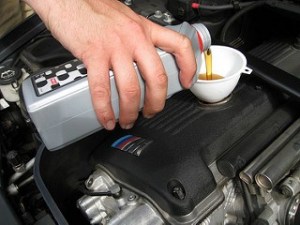Buying a new vehicle is a steep investment. Buying a used one can be, too. The only way to maintain or increase the life of your vehicle is through preventive vehicle maintenance – that’s maintenance that is done to make sure fluids and filters are changed regularly and parts are replaced before they fail. If you want to avoid new car payments or expensive and unnecessary repair bills, a commitment to preventive vehicle maintenance is a must. Here are 8 things you can do that will increase the life of your vehicle.
- Choose high-quality fluids and replacement parts. Yes, you may pay a little more when you receive the service, but you will notice the benefits as your vehicle gets older. High-quality fluids will protect your engine parts better so everything runs better and parts won’t wear out prematurely.
- Make sure you maintain the cooling system on a regular schedule. The antifreeze/coolant is your vehicle’s cooling system does a couple of things. First, it keeps the engine from overheating. Next, the coolant is designed to protect internal engine parts from becoming rusted and corroded. Older fluid can be very detrimental to your engine. It will run hotter and parts will wear out faster. Even worse, if the engine overheats, you could face having to replace the engine… or your vehicle. Along with cooling system maintenance, replace any hoses and belts that are beginning to show excessive wear.
- Service the transmission. When was the last time you checked the level and condition of your transmission fluid? This simple fluid check can tell a lot about what’s going on in the transmission. If you have to add fluid, it smells like it’s burnt, or the fluid color looks dark brown or black, you have a transmission problem. Follow the guidelines in your vehicle’s handbook to know when to service the transmission. If you are towing with your vehicle or place a heavy load on it, you will need to change the fluid and filter more often. An important note of caution… if you have never changed the transmission fluid or filter and your vehicle is approaching 80,000 to 100,000 miles, do not go out and have this service performed. Doing so can stir up dirt and pieces of metal that can cause a problem with your transmission. Check with us before scheduling a transmission service.
- Replace belts before they break. This is especially important when it is the timing belt. Yes, timing belt replacement is expensive; however, if you wait until the belt breaks, you will most likely need to replace the engine or your vehicle.
- Maintain the tires, suspension system and brakes. This is vital. If you drive on under- or overinflated tires, tires that are wearing unevenly, brakes that need to be replaced and/or a suspension system that is showing signs of a problem, you are putting yourself and others at risk. Have the tires rotated every 3,000 to 5,000 miles and replace them when they show signs of excessive wear or the tread depth is low. Check tire air pressure once a month and add air, as needed. Replace brake pads when we let you know it’s needed. If your vehicle is swaying more around turns or vibrating more on bumpy roads, have the suspension system checked.
- Watch for any signs and symptoms that show there’s a problem with your vehicle. If you hear strange sounds when driving, notice fluid leaks under your vehicle or smell something odd when driving, get it checked out.
- If you have a garage, keep your vehicle in it. Vehicles that are garage-kept last longer than those parked outside all the time. Air pollutants cause corrosion, rain and snow cause rust, the sun will fade the plastics and fabrics in the interior.
- Clean the interior and exterior of your vehicle regularly. By keeping the exterior clean and waxing it, you will make sure the paint finish will be protected. It’s also a good idea to hose off the underbody to remove road dirt and salts. Clean and vacuum the interior once a month and apply protectant to vinyl or leather.
The simplest way to make sure your vehicle maintenance is handled regularly is to bring it to Campus Repair in Ft. Collins, Colorado. We keep detailed records of the services we perform on each vehicle. We also conduct a courtesy inspection with each service to let you know if anything needs to be replaced. Call or stop by to have us take care of your next vehicle maintenance.

